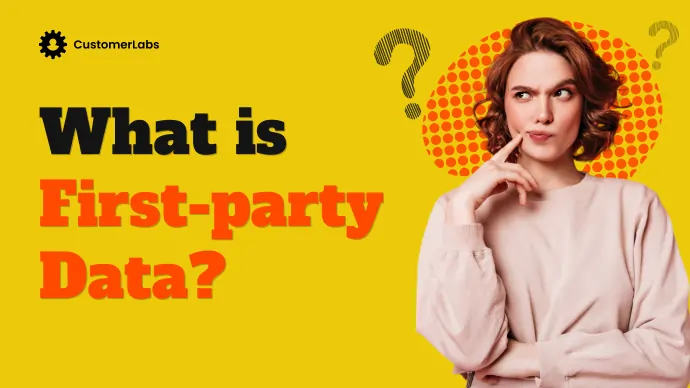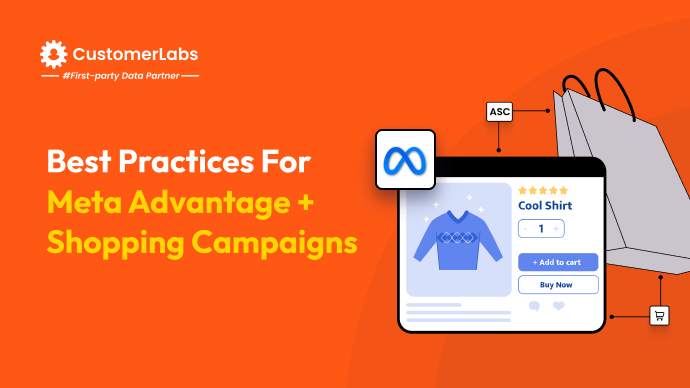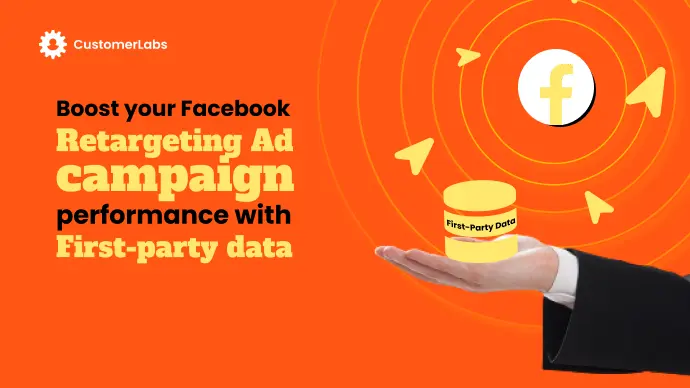If you want your Meta ads to really perform, it’s all about getting the right data in front of the right algorithms. But don’t go about drowning the system in data—it’s about smart, strategic choices that lead to better ROAS (Return on Ad Spend) and sharper ad targeting. That’s why at CustomerLabs, we focus on First-Party Data Operations (1PD Ops) to make sure Meta’s machine learning models are fed the most relevant and impactful data possible.
First-Party Data as the Detective’s Clues
Think of Meta’s machine learning models as detectives trying to solve a case. The more relevant clues (data points) they get from your first-party data, the better they can understand the suspect (your target audience) and predict their next move (conversion).
Our Role: Curating the Best Clues from First-Party Data
Instead of overwhelming Meta’s models with a ton of unfiltered data, we act as expert curators of your first-party data. By carefully selecting and structuring the information we send, we ensure that Meta’s models receive the most valuable and informative “clues,” enabling more effective ad optimization.
Feeding Meta the Right First-Party Data, Not Just All the Data
Meta’s machine-learning models are sophisticated, comprising an ensemble of algorithms designed to handle different aspects of ad delivery, targeting, and optimization. As we’ve established these machine-learning models need the right first-party data to optimize your ad campaigns effectively, flooding them with irrelevant or noisy data is like giving a detective a pile of irrelevant files—they might miss the key evidence that could crack the case. But if you give them carefully selected, high-quality first-party data, they can quickly identify patterns and make accurate predictions.
That’s where CustomerLabs’ First-Party Data Ops comes in. We don’t just dump every single data point into Meta’s system. Instead, we curate and organize your first-party data to provide Meta with the most relevant and valuable “clues.”
- Low, Mid, and High AOV (Average Order Value) Events: By breaking down purchases by value using your first-party data, we give Meta’s models clear signals about which customer behaviors are most profitable. This allows the models to zero in on users who are more likely to make high-value purchases, leading to better ad targeting and higher ROAS. Just as a detective prioritizes leads with the highest potential, Meta’s models focus on the first-party data points that are most likely to drive conversions.
- Category-Based Events: If you sell a range of products, we use your first-party data to send Meta information specific to each category. This helps Meta’s recommendation models figure out who’s interested in what, ensuring that your ads are shown to the right people. This targeted approach is like giving a detective specific details about different suspects, allowing them to build accurate profiles and make informed decisions.
Example:
Imagine you’re selling high-end electronics. By only sending Meta the High AOV events extracted from your first-party data, we’re essentially telling the algorithm to focus on the users who are most likely to make big purchases—those who fit the profile of your ideal customer. This approach ensures that the models aren’t distracted by less relevant data points, just as a detective wouldn’t waste time on irrelevant leads.
The Technical Bit:
The process of selecting and refining these “clues” is known as feature engineering within the context of first-party data ops. By providing Meta with high-quality clues from your first-party data, we help the platform’s models solve the case of optimizing your ad campaigns.
Aligning First-Party Data with Your Goals
Our detective-like approach doesn’t stop at just providing clues from your first-party data. We make sure that these clues are directly aligned with your business goals. We start by understanding what you want to achieve—whether it’s boosting full-price sales or targeting specific customer segments—and then tailor the data accordingly.
Example: If your goal is to increase full-price sales, we’ll focus on sending Meta first-party data related to those transactions, cutting out any noise from discounted purchases. This guides the algorithm to push ads to users who are more likely to pay full price, helping you keep those margins healthy. In detective terms, we’re ensuring that the evidence leads directly to the desired outcome.
Our Approach vs. Others: Avoiding the Pitfalls of Multi-Touch Attribution (MTA)
Other companies, like Apex from Northbeam, also aim to boost your Meta ad performance by integrating their multi-touch attribution (MTA) data directly into Meta’s optimization process. Apex takes a broad approach by distributing conversion credit across multiple platforms that a customer interacts with on their journey to purchase. For instance, if a customer engages with Meta ads, another paid platform, and branded search before making a $100 purchase, Apex might allocate only $50 of that credit to Meta and the remaining $50 to the other platform, effectively cutting the credit Meta receives when other platforms are involved.
While this redistribution can provide a more balanced view of performance across channels, it may also limit the credit Meta receives, potentially underestimating Meta’s influence on conversions. This approach could lead to less budget being allocated to Meta campaigns, even when they play a crucial role in driving conversions.
At CustomerLabs, we take a different approach. Our focus on First-Party Data Ops ensures that Meta’s optimization is enhanced by prioritizing the most relevant and high-impact data—such as Average Order Values (AOVs), specific product categories, and high-value actions—while still maintaining the integrity of the full attribution process. Rather than cutting credit, we focus on refining and structuring the data so that Meta’s algorithms can maximize their effectiveness, driving more conversions where they matter most.
Example:
If your goal is to optimize ads for specific product categories, our method ensures that Meta’s algorithm receives a clear, detailed picture of those categories, including high AOV purchases, without diluting Meta’s role in the conversion process. This keeps targeting sharp and effective, focusing on what drives results. While Apex’s approach may cut the credit to Meta when other platforms are involved, potentially limiting the resources allocated to Meta ads, CustomerLabs ensures that Meta’s contributions are fully recognized, helping you get the most out of your Meta ad spend.
The Result: Smarter Predictions and Better Performance Through First-Party Data Ops
In essence, we don’t just send data to Meta; we send intelligence derived from your first-party data. By acting as the expert detective on your case, we ensure that Meta’s models receive the most relevant and informative signals, enabling them to learn effectively and drive optimal campaign performance. At CustomerLabs, we’re all about making your Meta ads work smarter, not harder, through the power of First-Party Data Ops.







